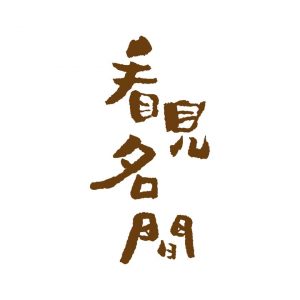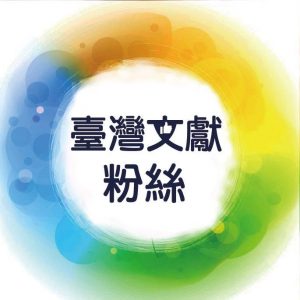場次一 Session I/14:10-15:00
講題 Title/Reconciliation between Museums and Indigenous People in Canada(加拿大博物館與原住民的和解)
講者 Speaker/Catherine C. Cole(獨立策展人與博物館諮詢專家、ICOM 加拿大國家委員會理事、ICOM永續獎評審)
Catherine C. Cole 是位於加拿大亞伯達省愛德蒙頓的 Catherine C. Cole & Associates 的首席顧問。她曾任博物館策展人及解說員,30年來在加拿大國內外就文化資產議題提供諮詢服務。Catherine 擁有加拿大原住民梅蒂斯人(Métis)血統,並在專業和個人層面都致力於去殖民化與和解。她是國際博物館協會(ICOM)去殖民化工作小組的成員,也是加拿大地理名稱委員會的原住民顧問。從2013年至2020年,Catherine 擔任大英國協博物館協會(CAM)秘書長一職,該協會是國際博物館協會(ICOM)的附屬網絡,由後殖民博物館及專業人士組成,致力於反思殖民遺緒並發展新的國際關係及工作實踐。
Catherine C. Cole is the Principal Consultant, Catherine C. Cole & Associates in Edmonton, Alberta, Canada. A former museum curator and interpreter, she has consulted on heritage issues throughout Canada and internationally for 30 years. Catherine is Métis and has made both a professional and personal commitment to decolonisation and reconciliation. She is a member of ICOM’s Working Group on Decolonisation and an Indigenous Advisor to the Geographical Names Board of Canada. From 2013-2020, Catherine served as Secretary-General of the Commonwealth Association of Museums (CAM), an ICOM-affiliated network of postcolonial museums and professionals that reflects on colonial legacies and develops new international relationships and working practices.
演講摘要 Abstract/
去殖民化的概念在不同情境下有不同的含義;在加拿大,它意味著增加原住民族的自決權。加拿大博物館在過去近40年間一直致力於去殖民化,透過一系列由聯邦政府和博物館協會主導的正式委員會、專案小組和報告,並在2015年「真相與和解委員會」的行動呼籲以及2021年《聯合國原住民族權利宣言》(UNDRIP)在加拿大入法後加速推進。儘管加拿大在博物館去殖民化方面取得了顯著進展,但仍有很長的路要走。原住民族群——因紐特人、原住民(First Nations)和梅蒂斯人——正與加拿大博物館學家、省/地區、國家及國際組織和政府合作,共同改造我們的博物館,以尊重原住民族的自決權。
去殖民化影響博物館工作的各個方面,從治理和營運,到藏品和保存,以及訪客近用和參與。這需要博物館內部和原住民社群內部都進行調整。博物館正在學習如何遵循原住民禮儀規範、分享權力、重新詮釋歷史,並實踐「雙眼視角」(two-eyed seeing)。原住民族正在學習博物館的程序和標準,並引入他們自己的標準。博物館通常渴望改變,但往往不知道從何開始,或者該走多遠。這種朝向去殖民化的轉型並非沒有爭議,也催生了替代形式的博物館——由原住民社群成員為支持原住民文化延續而開發的「原住民文化中心」。本文將把加拿大(擁有25,000公里太平洋海岸線)視為一個太平洋國家來探討,並將以加拿大北極地區的努納武特因紐特文化遺產中心作為案例研究。
The concept of decolonisation means different things in different contexts; in Canada it means increased self-determination for Indigenous peoples. Canadian museums have been working towards decolonisation for nearly 40 years, through a series of formal federal government and museums associations commissions, task forces, and reports, and accelerated through the 2015 Truth and Reconciliation Commission’s Calls to Action and the United Nations Declaration on the Rights of Indigenous Peoples (UNDRIP) becoming law in Canada in 2021. While Canada has made significant progress towards decolonising museums, there is still a long way to go. Indigenous Peoples – Inuit, First Nations, and Métis – are collaborating with Canadian museologists, provincial / territorial, national and international organisations and governments to transform our museums to respect the self-determination of Indigenous Peoples. Decolonisation impacts all aspects of museum work, from governance and operations through collections and conservation, as well as access and engagement. This has required adjustments both within museums and within Indigenous communities. Museums are learning how to follow Indigenous protocols, share power, reinterpret history, and practice ‘two-eyed seeing’. Indigenous peoples are learning about museum procedures and standards, and introducing their own. Museums generally want to change but often don’t know where to start, or how far to go. This transformation towards decolonisation has not occurred without debate and the introduction of alternative forms of museums – Indigenous cultural centres – developed by and for Indigenous community members to support the continuity of Indigenous cultures. Canada, with its 25,000 kilometers of coastline on the Pacific Ocean, will be considered as a Pacific Nation, and the Nunavut Inuit Heritage Centre, in the Canadian Arctic will also be used as a case study.
場次二 Session II/15:10-16:00
講題 Title/Rethinking Collections Care Practices Through Community Engagement(透過社區參與重新思考典藏照護實踐)
講者 Speaker/Amy Tjiong(美國自然史博物館人類學部門專員)
Amy Tjiong是一位受過專業訓練的文物修護師,目前在美國自然史博物館人類學部門擔任博物館專員,負責藏品照護工作。她在博物館工作期間,有幸接觸亞洲、太平洋和非洲藏品,並參與了西伯利亞文物修護項目和西北海岸廳的更新工程。她擁有紐約大學和哥倫比亞大學的碩士學位,目前正在紐約市立大學研究生中心攻讀人類學博士學位。她的專業興趣包括研究文化遺產材料的特性和用途,以及支持由社群主導的博物館實踐。
Amy Tjiong is a trained conservator and currently serves as a museum specialist caring for the collections in the Division of Anthropology at the American Museum of Natural History. During her time at the museum, she has had the privilege of working with the Asian, Pacific, and African collections and has contributed to projects including the Siberian Conservation Project and the renovation of the Northwest Coast Hall. She holds graduate degrees from New York University and Columbia University and is currently pursuing a Ph.D. in Anthropology at the CUNY Graduate Center. Her professional interests include researching the properties and uses of cultural heritage materials and supporting community-led museum practices.
演講摘要 Abstract/
博物館長期以來擁有重要的文化和教育權威,經常塑造公眾對歷史、文化和身份的理解。如今,這種權威正在經歷深刻的轉變。在過去幾十年中,文物修護倫理已從以物件為中心的方法轉向強調關係、互惠以及由後裔社群定義的價值觀的實踐。在這個不斷演進的框架內,與社群合作不再是例外——它已成為一種專業期望,特別是在人類學藏品的管理方面。
本文將探討這些變化如何透過美國自然史博物館最近的實踐而具體化,重點關注於2022年完成更新的西北海岸廳。我們將從這些案例研究中汲取經驗,檢視為與後裔社群成員建立夥伴關係所採取的步驟。這包括創建對話和共同決策的空間、在社群意見的基礎上制定文物修護計畫,以及將社群知識和視角融入典藏照護實踐中。透過分享所學經驗和反思所面臨的挑戰,本文將有助於圍繞倫理實踐、機構問責制和博物館權威的更廣泛對話。
Museums have long held significant cultural and educational authority, often shaping public understanding of history, culture, and identity. Today, that authority is undergoing a profound transformation. Over the past several decades, conservation ethics have shifted away from object-centered approaches toward practices that emphasize relationships, reciprocity, and values defined by descendant communities. Within this evolving framework, collaboration with communities is no longer the exception—it has become a professional expectation, particularly in the stewardship of anthropological collections.
This presentation explores how these changes have materialized through recent initiatives at the American Museum of Natural History, with a focus on the renovation of the Northwest Coast Hall, completed in 2022. Drawing from these case studies, we examine the steps taken for building partnerships with descendant community members. These include creating spaces for dialogue and shared decision-making, developing conservation treatment plans with community input, and integrating community knowledge and perspectives into collections care practices. By sharing lessons learned and reflecting on the challenges faced, this presentation contributes to broader conversations around ethical practice, institutional accountability, and museum authority.
綜合問答 Q&A/16:00-16:20
本講座提供英中逐步口譯/This lecture provides English-Mandarin consecutive interpretation
售票網站:https://event.culture.tw/mocweb/reg/NMP/Detail.init.ctr?actId=50224
| 活動時間 | 活動地點 | 活動票價 | 結束時間 |
|---|---|---|---|
| 2025/07/27 14:00:00 | 康樂本館行政大樓學習教室(2058會議室) | 免費 | 2025/07/27 14:00:00 |


